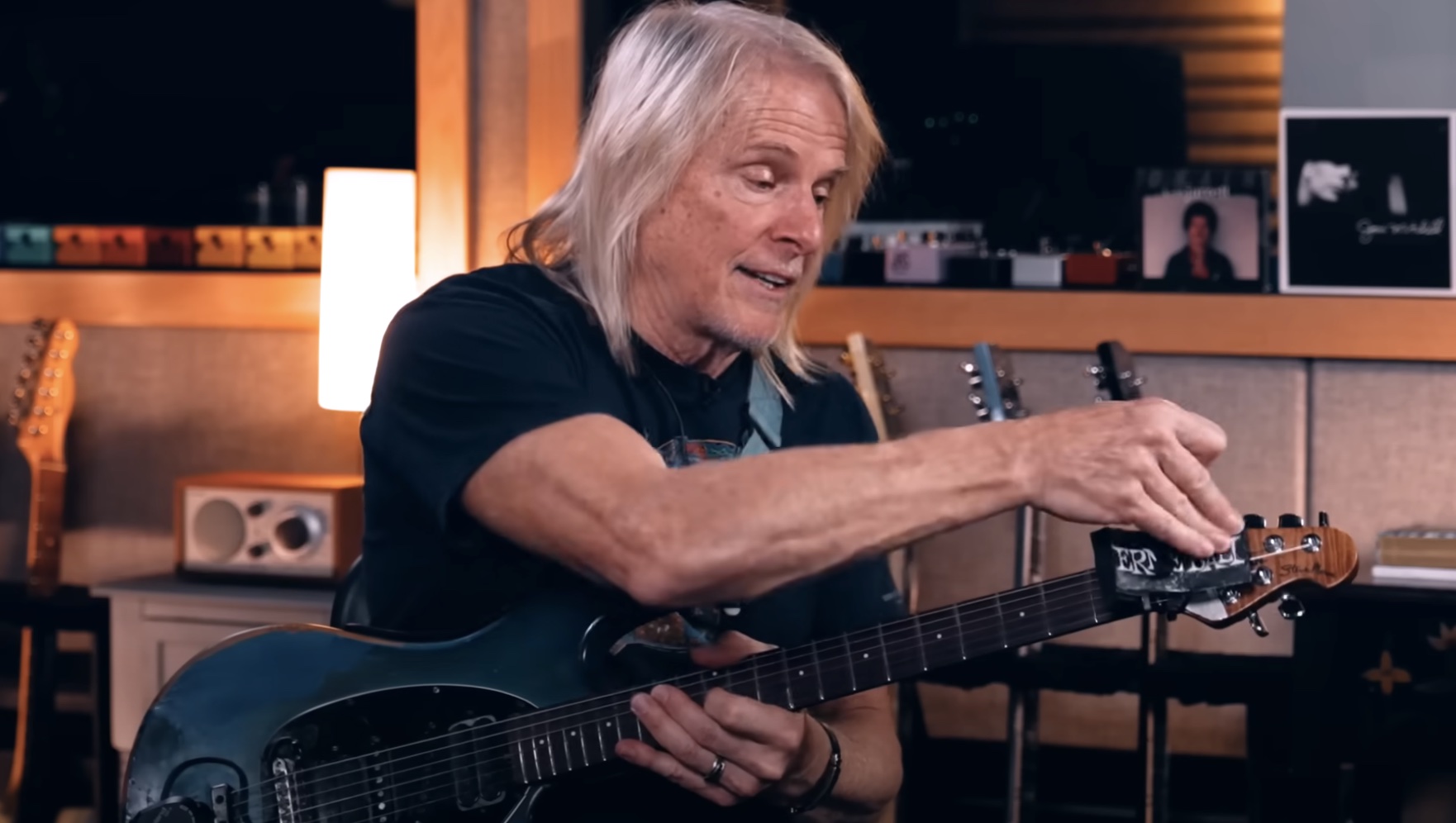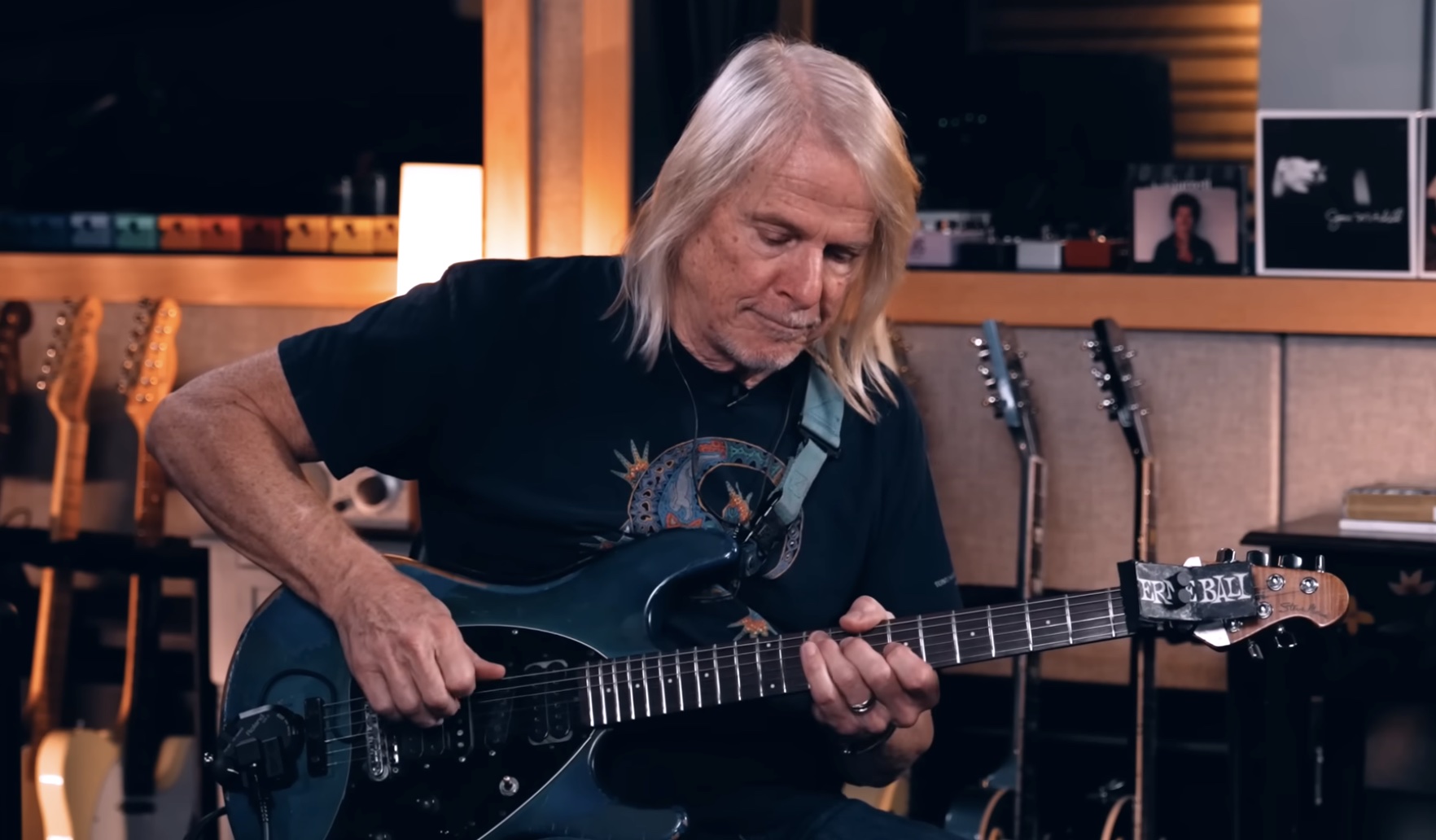"A sports doctor looked at it and he was laughing at me": Steve Morse reveals how his struggle with arthritis has transformed his technique – and the nifty mod he made to limit the damage to his picking hand
"Rather than roll over and die, I’m like, ‘No, I still want to play,’” the Dixie Dregs, Kansas, and Deep Purple maestro explains

All the latest guitar news, interviews, lessons, reviews, deals and more, direct to your inbox!
You are now subscribed
Your newsletter sign-up was successful
Steve Morse has spent decades wowing guitarists with his precise, light-speed fret-work. In a new interview with YouTuber Rick Beato, though, Morse revealed that that very right-hand precision has taken a significant physical toll.
To achieve his trademark blistering arpeggios and string-skipping, Morse would mute strings with his pinky and palm, letting his right-hand wrist work at incredible speed with minimal movement.
That very technique, however – plus, the electric guitar icon reveals, both a family history of arthritis and his grueling practice regimen – has significantly damaged Morse's picking hand.
“These bones,” Morse says, gesturing to his right-hand wrist, “don't have the cartilage anymore – and [they've become] worn away, diseased, and very painful.”
Morse, however, was determined to find workarounds, and keep playing.
“Rather than roll over and die,” the Dixie Dregs, Kansas, and Deep Purple alum tells Beato, “I'm like, 'No, I still wanna play'.”
One of these workarounds, Morse demonstrates, is an Ernie Ball-branded, fret wrap-esque tool that lightens his right-hand workload by seemingly using the guitar's locking nut to quickly attach to its strings when needed.
All the latest guitar news, interviews, lessons, reviews, deals and more, direct to your inbox!
“It's obviously been done before,” the guitar legend notes, “but I invented a different way of making the structure and making it more immediate.”
Mods aside, though, Morse has also had to make some technical adjustments to his approach, using fingerpicking for taxing passages whenever possible, despite the fact that – according to Morse – “it doesn't sound the same.”
When fingerpicking isn't an option, Morse has also taken to generating movement from his right elbow while keeping the wrist stationary, holding the guitar pick with the side of his finger or between his thumb, index, and middle fingers.
This isn't to say that Morse is completely unable to use his right wrist as he used to – however, the guitarist notes, doing so is quite painful.

Morse has sought medical attention for his arthritis on a number of occasions, telling Beato that one sports doctor laughed in amazement at the extent of Morse's right-hand damage.
“I had shooting pains for a long time, but I always thought it was ligaments and tendons that I'd strained earlier,” Morse explains. “I've got it all – tendonitis, you name it. Whatever you can get from playing relentlessly for half a century.
“I thought it was soft-tissue stuff – that it would be fixable. The sports doctor was laughing at me – he said, 'Why do you have so much arthritis? You're too young for this!' I went up to Harvard medical, and said 'Could you guys give me some cartilage?' and they said 'No, it'll be like a tumor if we do – but we could fuse your bones.' So, that's what I chose to do – fuse the bones in my wrist for most of the strenuous stuff.”

Jackson is an Associate Editor at GuitarWorld.com and GuitarPlayer.com. He’s been writing and editing stories about new gear, technique and guitar-driven music both old and new since 2014, and has also written extensively on the same topics for Guitar Player. Elsewhere, his album reviews and essays have appeared in Louder and Unrecorded. Though open to music of all kinds, his greatest love has always been indie, and everything that falls under its massive umbrella. To that end, you can find him on Twitter crowing about whatever great new guitar band you need to drop everything to hear right now.
